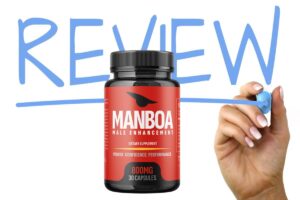When it comes to popular Australian supplements, many simply don’t live up to the hype. You might believe that a fat burner or herbal remedy will assist in shedding those extra kilos or enhancing your overall wellness, but the reality often paints a different picture. With dubious scientific evidence and potential health risks, it’s vital to carefully assess what you’re putting into your body. So, which supplements genuinely fail to deliver on their promises? Let’s take a closer look.
Protein Powders: The Truth Behind the Hype
Have you ever wondered why protein powders have become a staple in many fitness regimens? Their appeal lies in their convenience and ability to quickly boost protein intake, particularly after a workout.
However, while they can aid in muscle recovery and growth, it’s essential to closely examine their actual effectiveness. Research indicates that whole food sources often deliver superior nutritional benefits, including essential vitamins and minerals that many powders lack.
Furthermore, some products may contain added sugars or artificial ingredients, which can undermine your health goals. It’s also important to consider your individual protein needs, as excessive intake may place strain on your kidneys.
Ultimately, while protein powders can be a useful supplement to your diet, relying solely on them mightn’t be the best strategy for achieving optimal health and fitness.
Fat Burners: Are They Really Effective?
While fat burners often promise rapid weight loss and heightened metabolism, their actual effectiveness can be somewhat misleading. Research suggests that most fat-burning supplements contain stimulants, such as caffeine, which may provide a temporary energy boost but don’t ensure fat loss. You might experience a slight uptick in metabolism, yet this effect is generally minimal and short-lived.
Furthermore, many of these supplements lack robust scientific support, relying instead on anecdotal evidence or flashy marketing claims. Genuine weight loss stems from a balanced diet and regular exercise—not from miracle pills.
If you’re contemplating the use of fat burners, it’s essential to remember that they shouldn’t replace healthy lifestyle choices. Prioritise sustainable habits for lasting results rather than quick fixes that may not live up to expectations.
Multivitamins: Do They Deliver on Nutritional Claims?
Are multivitamins the ultimate answer to your nutritional needs? While they claim to bridge dietary gaps, research presents a mixed bag of findings.
Numerous studies suggest that for the majority of people, a well-rounded diet provides adequate nutrients, rendering multivitamins largely unnecessary. Furthermore, excessive consumption of certain vitamins and minerals can result in toxicity and health complications. For instance, high levels of vitamin A may lead to liver damage, and an overabundance of iron could elevate the risk of heart disease.
It’s essential to assess your personal dietary habits before turning to supplements. Consulting a healthcare professional can assist you in determining whether multivitamins are suitable for you.
Ultimately, these supplements shouldn’t substitute for whole foods, which offer a complex array of nutrients and benefits that can’t be replicated by pills.
Omega-3 Supplements: Benefits vs. Reality
Omega-3 supplements have gained significant traction in Australia, often touted as a miracle solution for a range of health concerns, from heart disease to cognitive decline.
However, the evidence backing these claims is somewhat inconsistent. While some research indicates that omega-3s may help lower triglycerides and reduce the risk of heart disease, other studies show only minimal benefits for cognitive health, particularly in older adults.
Many people mistakenly believe that taking a supplement can make up for a poor diet, but this is a misconception. A more effective approach might be to include omega-3-rich foods, such as fatty fish, in your meals.
It’s also worth noting that the quality of omega-3 supplements can vary significantly, with some products failing to deliver the advertised amounts of active ingredients.
Before embarking on any supplement regime, it’s crucial to consult a healthcare professional to ensure that it aligns with your health needs.
Herbal Supplements: Natural Doesn’t Always Mean Effective
While many individuals turn to herbal supplements in the belief that they provide a natural remedy for a range of health concerns, the fact remains that “natural” doesn’t necessarily mean effective. Research has demonstrated that some herbal products lack the scientific validation to back their claims.
For example, ginseng is frequently promoted for its supposed benefits in boosting energy and enhancing focus, yet studies reveal mixed results regarding its true effectiveness.
Furthermore, quality control within the herbal supplement industry can vary significantly, resulting in potential contamination or inaccurate dosages.
It’s a common misconception that herbal means safe; in reality, side effects and interactions with medications can occur.
It’s essential to critically evaluate the evidence supporting these supplements and seek advice from healthcare professionals before relying on them for health solutions.
Pre-Workout Formulas: Worth the Energy Boost?
What if you could enhance your workout performance with just a scoop of powder? Pre-workout formulas often promise increased energy, improved focus, and enhanced endurance.
However, many of these claims lack robust scientific backing. Ingredients such as caffeine and beta-alanine can indeed boost performance, but the effects can vary significantly from person to person. Some users report experiencing jitters or crashes due to excessive caffeine, while others may not feel the supposed benefits at all.
Furthermore, proprietary blends can obscure ingredient dosages, making it difficult to know exactly what you’re consuming.
Probiotics: Are They a Cure-All for Gut Health?
If you’re aiming to enhance your gut health, probiotics may appear to be a miracle answer, but the truth is more nuanced.
While these live microorganisms can provide benefits—such as balancing gut bacteria and assisting digestion—they’re not a panacea. Research indicates that not all probiotics are effective for every individual or condition. The specific strains and dosages are crucial; what benefits one person may not have the same effect on another.
Furthermore, the human gut is shaped by a variety of factors, including diet, lifestyle, and environment, which probiotics alone can’t alter.
Therefore, while incorporating probiotics can be advantageous, it’s important not to rely solely on them for gut health. A holistic approach, which includes a balanced diet, is vital for optimal digestive wellness.
Collagen Supplements: Do They Improve Skin and Joint Health?
As you look for ways to enhance your overall well-being, collagen supplements have gained popularity for their potential benefits in improving skin and joint health.
However, the evidence supporting these claims is somewhat mixed. Some studies suggest that collagen may help improve skin elasticity and hydration, while other research indicates minimal effects.
When it comes to joint health, collagen might assist in reducing pain and improving function, but results can vary significantly from one person to another.
It’s worth noting that your body produces collagen naturally, and supplementation may not lead to a substantial increase in levels.
Instead, focusing on a balanced diet rich in vitamin C and amino acids can more effectively support your body’s collagen production.
Always consult with a healthcare professional before starting any supplement regimen.
Conclusion
In the realm of supplements, it’s essential to scrutinise the hype and assertions that surround popular products. Many items, such as fat burners and herbal supplements, lack robust scientific backing and may not provide the benefits they claim. A well-rounded diet and a healthy lifestyle remain your most reliable strategies for achieving wellness. Don’t be swayed by marketing ploys—focus on evidence-based nutrition and seek advice from healthcare professionals to make informed decisions about your supplement intake. Your health deserves more than just empty promises.


